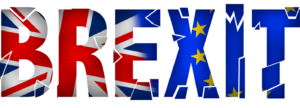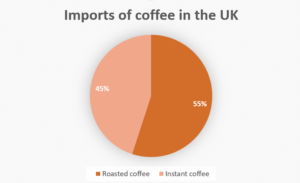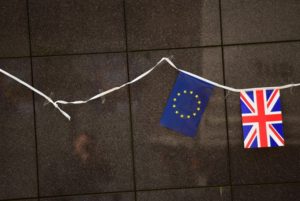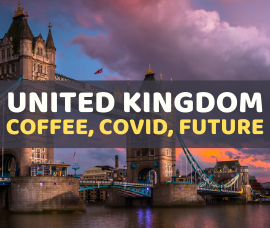Brexit: what London means for the world of coffee
 At the time of writing, we do not yet know what will happen to the European coffee economy after the British referendum to possibly leave the EU, but for sure we can describe what London means for the world of coffee and how the UK is related to the European coffee economy.
At the time of writing, we do not yet know what will happen to the European coffee economy after the British referendum to possibly leave the EU, but for sure we can describe what London means for the world of coffee and how the UK is related to the European coffee economy.
In the coffee world, London represents the fixed point in Europe:
- It is host to the headquarters of the ICO, International coffee Organization, which includes almost all countries of production and most of those consumers;
- It has one of the most important coffee stock exchanges, that quotes Robusta coffee prices. Prices of Arabica are quoted in New York;
- In recent years, the United Kingdom and, in particular, London, have become the European hearth of specialty coffee. This movement, linked to the third wave, considers coffee as an artisanal foodstuff and not a commodity. Many new small coffee shops have opened in the country serving high quality beverages. London, furthermore, is host to the headquarters of the Specialty Coffee Association of Europe.
 Besides its strategical importance, the link between Europe and London can also be viewed in terms of trade. The UK imports about 70% of total coffee consumed in the country. We are not talking about green coffee beans from countries of production like Brazil, Vietnam, Indonesia, Colombia etc. but rather roasted and instant coffee.
Besides its strategical importance, the link between Europe and London can also be viewed in terms of trade. The UK imports about 70% of total coffee consumed in the country. We are not talking about green coffee beans from countries of production like Brazil, Vietnam, Indonesia, Colombia etc. but rather roasted and instant coffee.
Roasted coffee represents 55% of total imports in quantity while the other 45% is instant coffee. The majority of these imports come from the EU (more than 90% for roasted coffee and more than 75% for instant coffee).
 Roasted coffee comes mainly from Germany (25%), Italy (23%), the Netherlands (13%) and France (9%).
Roasted coffee comes mainly from Germany (25%), Italy (23%), the Netherlands (13%) and France (9%).
Instant coffee comes mainly from Germany (33%), the Netherlands (16%), France (8%) and Spain (7%).
The UK is not only one of the main destination countries for European coffee roasters but vice versa also half of its local coffee production is sold abroad.
Instant coffee, for example, is sold in particular to Germany (18%), the Czech Republic (18%), Ireland (14%) and France (13%) while roasted is sold in France (18%), Ireland (13%), Germany (5%), Belgium (5%) and Spain (4%).
 The international trade balance (import-export) for the UK vs Europe is negative, but mostly because the coffee market in the country is increasing strongly (+27% in quantity and +22% in value in 2015) and this is a great opportunity for European producers.
The international trade balance (import-export) for the UK vs Europe is negative, but mostly because the coffee market in the country is increasing strongly (+27% in quantity and +22% in value in 2015) and this is a great opportunity for European producers.
And after the Brexit?
- will it boost the growth of local roasters?
- will it reduce the UK coffee market?
- will it encourage the entrance of non-European roasters?


